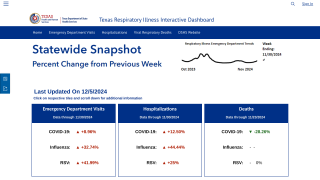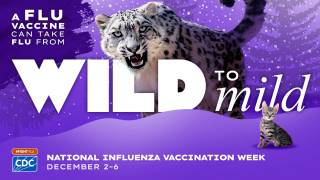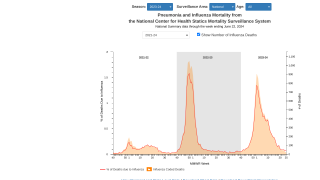Protect Expecting Mothers During National Immunization Awareness Month

August is the observance of National Immunization Awareness Month (NIAM) which highlights the importance of ‘getting recommended vaccines throughout your life.’
This Centers for Disease Control and Prevention (CDC) month-long event empowers pregnant women with trustworthy vaccine information needed to make informed decisions on how to protect themselves and future families against serious diseases.
‘Like many parenting topics, vaccination can feel overwhelming at first. The good news is there are clear recommendations, backed by extensive research,’ says the CDC.
‘If you are pregnant or plan to become pregnant, vaccinations are an important step in keeping you and your baby healthy.’
Vaccines are given before pregnancy to help protect expecting mothers from serious diseases including rubella, which can cause miscarriages and birth defects.
The best protection against rubella is the measles-mumps-rubella (MMR) vaccine. Most women were vaccinated as children with the MMR vaccine, but you should confirm this with your doctor.
Healthcare providers can order a pre-pregnancy blood test to see if you are immune to the rubella virus.
‘If your immunity is not up to date, you should schedule an MMR vaccination before getting pregnant,’ says the CDC.
If you need to get vaccinated for rubella, you should avoid becoming pregnant until 1-month after receiving the MMR vaccine and, ideally, not until your immunity is confirmed by a blood test.
>>> Order a confidential rubella test <<<
During pregnancy, women share everything with their babies.
“Expectant mothers spend much of their pregnancy preparing for the arrival of their new baby. One part of that preparation should be ensuring they are up to date in regards to their immunizations,” said Chris Felton, PharmD, Clinical Pharmacist, MTM and Immunization Specialist for Brookshire Grocery Company.
“Give your baby a safe environment to come home to and talk to your doctor or pharmacist today!”
Other vaccines, like an annual flu vaccine, can be given before or during pregnancy, depending on whether or not it is flu season when you’re pregnant. Flu vaccines have been found safe for women to receive right after giving birth, even while breastfeeding, says the CDC.
Once the baby is born, vaccines are recommended to protect against serious and sometimes deadly diseases.
Depending on the baby’s age, health and development, specific vaccines are suggested at certain stages for varicella, mumps, polio, diphtheria, influenza, hepatitis A and B, pneumococcal, rotavirus, rubella, tetanus, Hemophilus influenzae type b, measles and pertussis.
Additionally, if you are planning to take an international trip while pregnant, the CDC says to speak with your doctor about which other vaccines you may need for your destination.
During 2019, certain countries are confronted with disease outbreaks, such as:
During the CDC’s National Immunization Awareness Month, every woman is encouraged to take this Adult Vaccine Quiz to find out what vaccines they may need before becoming pregnant.
Be sure to discuss each vaccine with your healthcare professional before getting vaccinated, says the CDC.
Recent expecting mother vaccine news
Our Trust Standards: Medical Advisory Committee


























